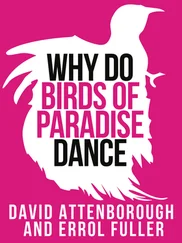Now Bethany shifted her face, her eyes looked fixed and unlit. But then a quickness, a kind of whip-crack, slit the air. Perhaps it was just the shock of seeing Felice there at all. Bethany’s mouth opened wide, a black circle. She shrieked and shoved Gary with enough force so he stumbled backwards, laughing with shock. Then Felice saw his face darken. “What the fuck! Little cunt. You fucking little—” He seized her upper arm. Bethany’s hand flickered so quickly Felice almost missed the jab to his windpipe. Gary wheezed, doubled over, grabbing his throat. Bethany leapt off the curb, running, but it seemed to Felice that time wrinkled, expanding and contracting: now it slowed again, throwing details into relief: Felice saw the arc of Bethany’s neck, the scorched ends of her hair, her wrinkled fingertips. She saw how the toe of Bethany’s shoe snagged on a piece of broken pavement, throwing her, chin and palms slamming on the sidewalk, smearing blood. Gary scrambled after her; lunging at Bethany, he snatched at her ankle. She kicked free, smashing his fingers. He screamed and lunged and caught her again, dragged her backwards over the sidewalk. “Fucking — cunt…” His voice a rasp.
Felice opened her mouth but couldn’t make any sounds. There was no noise anywhere but Gary’s strangled wheeze. His bad eye seemed fixed on her and she felt as if she were caught in some paralyzing beam. Then Bethany started trying to kick again, her body electrified, one foot flying into his face; she let loose a tremendous, night-whitening blast of a scream.
Felice didn’t remember running, only that when she came around the corner she spotted, just ahead, a girl in a pencil skirt and silk blouse crouching over Alma. The girl straightened as Felice ran toward her and started moving away. “No, no, no — it’s not me!” Felice gabbled, pleading. “There’s a man — he’s hurting my friend — they’re right over there, around the corner — we’ve got to call—”
“Sorry.” The woman held up her hands, warding off Felice. She cut across the street. “I can’t — I’m — I just can’t…”
Can’t what? Felice stared as the woman scurried off, as if Felice were the danger. She wanted to run after that woman, to shout, You don’t do that! You don’t leave people!
But it was exactly what Felice had almost done. It’s what she would have done if she weren’t somehow more afraid of going backwards. Nobody cared about girls like Bethany. Felice thought of the meth-head kids, their teeth burnt away to silvery stubs, eyes like crusts, as if you could see the rot of the drug eating them from the inside out. She thought of the kids who drink to unconsciousness, kids who break into homes and drink rubbing alcohol, Listerine, if there’s no booze. Melinda, her arms and legs furrowed with scar tissue from slitting herself with a box cutter. She loved the feeling of it, she’d said, as much as she loved crack. One day her arm — then her whole body swelled, turned hot, an angry bluish-red: by the time they got her to an emergency room it was too late.
Felice went to Alma who was still doubled over on the step. Felice shook her with all her might, but she flopped around. Something clattered out of her pocket to the steps — a cell phone. Felice picked it up, hands trembling, and stared hard at the numbers. Her mother had given her a cell the year before, but she’d let the battery run down, had forgotten it at a bar. The numbers on the metal wafer glowed in her hand: who could she call? The police were unpredictable and dangerous; she didn’t have any friends besides Alma. The girls she’d known in school would have crumpled, gone up like puffs of smoke over something like this. Night air rushed through her: Please don’t let me be like that anymore. The numbered keyboard looked like beads of light under her fingers: she heard her mother’s voice, it was as if Felice had summoned her from the air. There was a tidal movement within her body, her voice crying, “Mommy…”
Her mother was saying, “Felice… Is it you ?”
She clutched the phone; edged around the corner: so dark it was hard to see what was going on at the end of the block. She thought she saw Bethany and the man. Felice crept toward her, keeping close to the buildings, outside the penumbra of the streetlamps. The light was dismal, a sort of absence in the air. She could just make them out: the man was on top of Bethany. Felice wanted to tell her mother what was happening, but she couldn’t speak. She clung to the cement face of a building, her thoughts cut to pieces.
The phone fell out of her hands, an object on the sidewalk that spoke with a miniature version of her mother’s voice. She backed away, staring. Behind her, another sound crept up, a metronomic beating: Felice lifted her head to see a lone car stop at the intersection. White with a tattered convertible top, its windows were black, as if the interior was filled with smoke, and a growling thud bounced up the street. The chambermaids had warned Felice to stay clear of cars like this: Haitian gangbangers, Miami Kings, the MS-13 guys down from California. “They’d steal a girl like you,” Hilda had said, “and sell you. Make you into a slave, somewhere far away, and no one would ever hear from you again.” As Felice approached, the music crept over her — a dire, unintelligible voice chanting warnings. The engine roared so loudly it strummed across her bones. She slapped her hands on the tinted glass of the driver’s window. It lowered a few inches and she made out black eyes, a small black tattoo at the outer corner of one eye. “Please — please…”
“Qué te pasa, qué quieres?”
There was something about the eyes that struck her as a kind of perfection: she couldn’t look away. “Un hombre — quiere matar a mi amiga —please — he’s got a knife I think —tiene un cuchillo.”
“Fuck, man! No fucking way.” This came from the backseat. “No coño, vámonos de aquí ahora, vete, coño, vámonos!”
There was a quiver of motion within the car and for a terrible second Felice thought he was about to pull away. A light rain had started like static. She put her hands on the partially lowered window: she didn’t care if he buzzed it back up; she wouldn’t let go. She’d caught an accent in his Spanish. Haitian? She’d known a Cuban-Haitian boy in her school — Andres. Once, he’d walked up to Felice in his low baggy shorts and polo shirt and asked her, You know what they call the color of those eyes? She’d shrugged. “Violet,” he’d said in his lilting voice. “Those are violet.”
The perfect black eyes kept staring back at her: in that moment, Felice began to feel that he knew about her, that he knew that all of this was part of her obligation. After several seconds of that gaze, fine and clear as a sheet of glass, the eyes turned toward the corner where she’d pointed. Felice held still. She could no longer hear Bethany’s cries, only the booming from the car.
The eyes flicked back to her: the driver said, “We take care of it. You get out of here.”
Felice stepped backwards, watching as four young men with cinnamon-colored skin climbed out of the car, moving casually as if they were going to a party. One man reaching behind to the back of his waistband. She turned and walked straight up the road without looking back. She walked all the way to the Cove, where the beach rats and outdoor kids hung out. She knew she’d be safe there. It was possible that Bethany would get away. And Alma would eventually stumble home to her mother. For one night, at least, Felice hoped the judgment was over. Sometimes the most important thing was just staying safe, and knowing and being among the right kinds of people — so you didn’t get anyone into trouble. That was the most important thing of all — not getting anyone else into trouble.
Читать дальше












